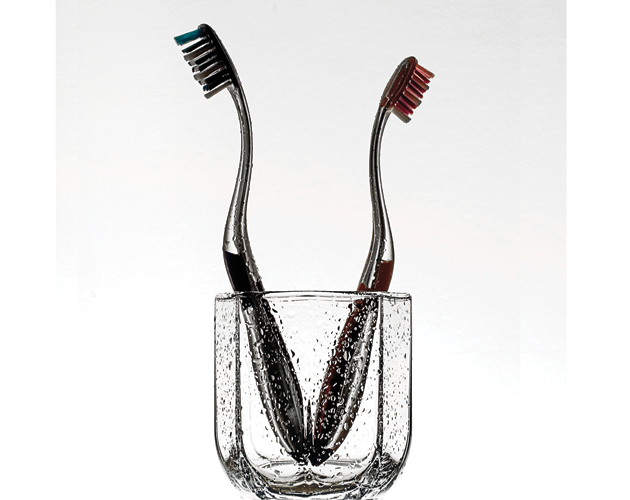Oral Health News

Many age-related medications, radiation therapy to the head or neck and some systemic diseases such as diabetes can cut output of saliva and create dry mouth (xerostomia). Not a good thing, as saliva, the antimicrobial fluid that lubricates the mouth, flushes away food particles and millions of bacteria, defends tooth enamel and prevents cavities and gum disease. Acid generated by bacteria in plaque makes teeth vulnerable to decay.
Plaque can lead to inflammation of the gums (gingivitis), which, if it progresses, destroys bone and gum tissue (periodontal disease) and may mean loss of teeth. Researchers think bacteria and chemicals from this inflammatory process travel through the bloodstream and may be linked to atherosclerosis (a risk for heart disease and stroke), diabetes, arthritis and cell mutations that lead to cancer.
April is flagged National Oral Health Month, a reminder that brushing, flossing and seeing your dentist regularly protects overall health. Here, more tips for taking care of the enamel on your teeth.
Fluoride fortifies enamel, so if your community fluoridates water, choose it over non-fluoridated bottled water, which also may be more acidic.
Chew sugar-free gum to stimulate saliva production.
Brush with a soft-bristled toothbrush to keep dental surfaces smooth. Roughened surfaces can become havens for bacteria. Try: Colgate 360° Enamel Health toothbrush.
Use electric toothbrushes with timers to encourage brushing for a full two minutes. Try: Oral-B Deep Sweep 5000 Electric Toothbrush with SmartGuide.
Choose enamel-protective toothpaste, which can also help decrease sensitivity, restore natural whiteness and fight erosion. Try: Sensodyne Pronamel Multi-Action toothpaste or Colgate Enamel Health.
Use a tongue cleaner to remove the buildup of bacteria and for fresher breath. Try: Orabrush (available at Shoppers Drug Mart and Walmart).
Floss daily. Try: Oral-B Glide Pro-Health Clinical Protection Floss for an easier slide between tight teeth.
An anti-cavity rinse may also remove stains. Try: Listerine Healthy White Gentle Sodium Fluoride Rinse, said to be gentle on enamel.
———-
After 10 years delivering geriatric oral care to people in more than 140 long-term care facilities, nursing homes and hospitals in Ontario, Dr. Natalie Archer of Archer Dental in Toronto has, with the Canadian Centre for Elder Law and the National Initiative for the Care of the Elderly (NICE), launched the Dental Elder Awareness Response (DEAR), so caregivers and family members will realize the importance of dental care.
Expert tip When planning financial and personal care for you or a loved one, include provisions for dental care – some 65 and older may delay seeing a dentist because of cost – and a substitute decision-maker for dental issues. Here, some of the reasons:
– Bacteria inhaled from an infected mouth can cause pneumonia, a leading cause of death in long-term care homes.
– Loved ones with dementia or who can’t physically manage to brush and floss may not get proper preventative dental care on a daily basis.
– Staff may be in short supply or not trained to brush and floss an older person’s teeth or dentures effectively .
Zoomer magazine, April 2015